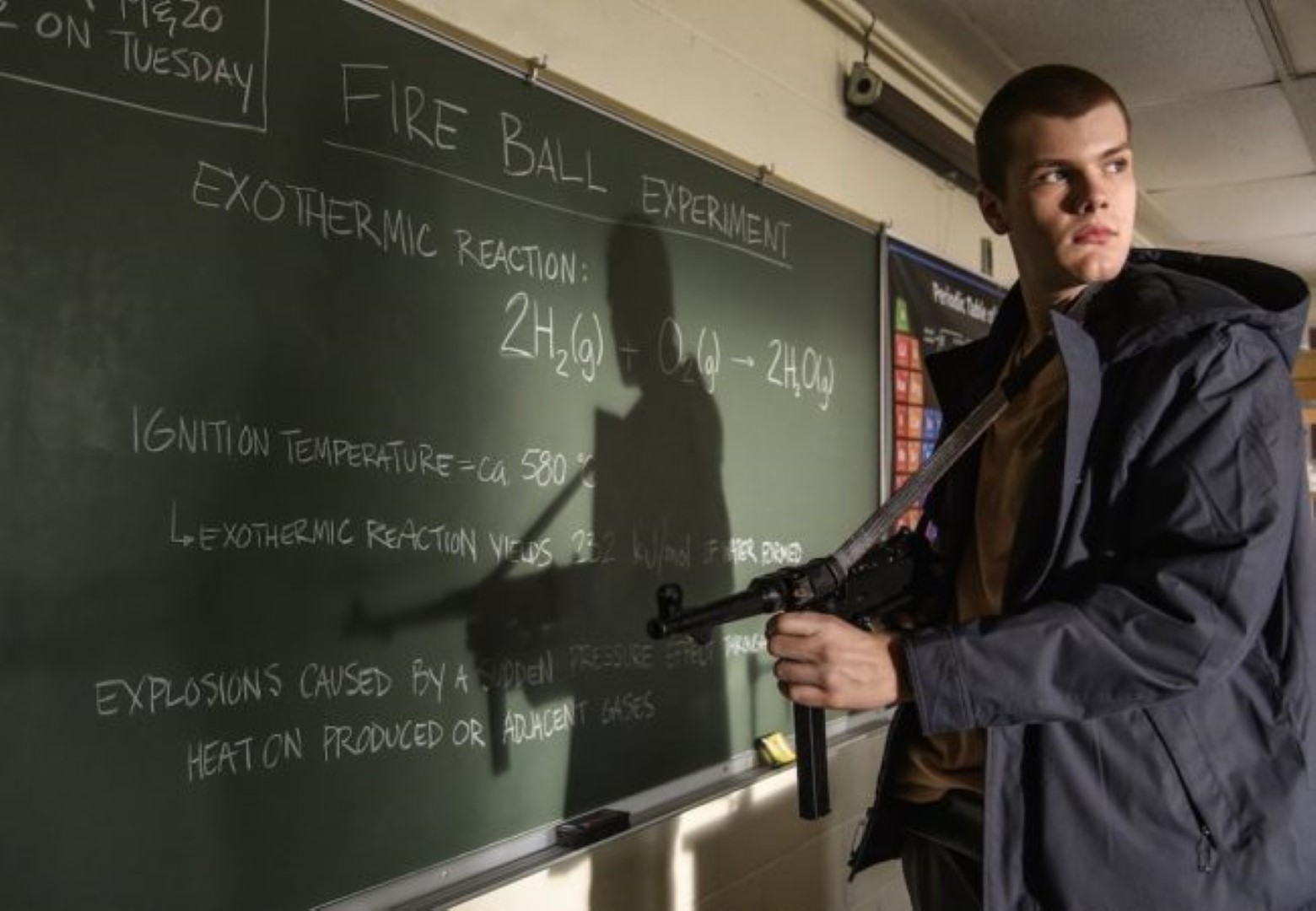
It’s hard to understand the criticisms when similar movies like ‘Die Hard’ are still legendary
By Luana Ross, Contributor
There are no criticisms that Die Hard should have grappled the complex ethical and moral questions that come with killing people in a better way.
The term most commonly used by critics to describe the film Run Hide Fight is “tasteless.” Examples include “poor-taste experiment,” “fundamentally tasteless,” and finally, “grotesque tastelessness.” There is a stark difference in the opinions of the critics and the opinions of the audience on this film, however; on metacritic, the film received exclusively negative reviews from the six professional critics while the cumulative review of 440 users was overwhelmingly positive. The same trend between the critics and the audience can be seen on Rotten Tomatoes; the 12 professional critics gave the movie 25 percent while the 2,361 user ratings awarded the film 93 percent. IMDb user Matthew Brink, in his review named “Metacritic LOL,” states this: “When critics try to flush it and it makes you want to see it even more. attempted social censorship by cool shaming is so passé. total green light.”
Clearly there is some controversy surrounding this film, as the subject matter is school shootings. The IMDb description of the movie is “17-year-old Zoe Hull uses her wits, survival skills, and compassion to fight for her life, and those of her fellow classmates, against a group of live-streaming school shooters.” The film is often described as Die Hard in a school—and this description has been used as both a positive and a negative for the movie. Run Hide Fight is the center for much controversy—especially from critics—but why? Comparing the film to Die Hard for example, a film that has easily reached the status of cultural icon, the movies both similarly deal with real-life issues that are associated to a lot of heartbreak. Die Hard deals with terrorists holding hostages in an office building; Run Hide Fight deals with school shooters (terrorists) holding hostages in a school. Both films are celebrated for being great thrillers that take the viewer through a rollercoaster of emotions. So, why does Die Hard have 94 percent from 77 critics on Rotten Tomatoes?
The common gripes critics have against Run Hide include that it is shallow and it “makes no attempt to grapple” school shootings smartly—but I see no similar issue with Die Hard despite the fact that same criticism could easily be made. Die Hard kills terrorists in a comical fashion all the way throughout the movie, but there are no criticisms that Die Hard should have grappled the complex ethical and moral questions that come with killing people in a better way. I don’t think it is a movie’s obligation to tackle topics in a specific way. Movies, and all art, should be created for whatever reason the creator wants—whether it be to excite the audience, to make the audience laugh, or to make the audience think. Movies—and all art—have no obligation to approach topics as others believe they should.
Many also criticize the film for having an agenda—but don’t most action movies have the same “save the day and be an American hero” agenda? Why is Run Hide Fight being singled out? I completely understand that many don’t like the action genre but Run Hide Fight is simply a part of an old and classic genre that is already established in its tropes. Even Taken, which deals with child sex trafficking, has not met such harsh criticisms. Culture and movie critics seem to understand the cheesy (and sometimes insensitive) tropes that come with action movies and should extend the same understanding to Run Hide Fight. Films are often made with the main intention of entertaining the audience in mind; Run Hide Fight should not be obligated to “grapple” with the issues brought up in the film. Since we don’t intend to hold the millions of actions movies we already idolize in culture to the same standard, why should Run Hide Fight be judged differently?

